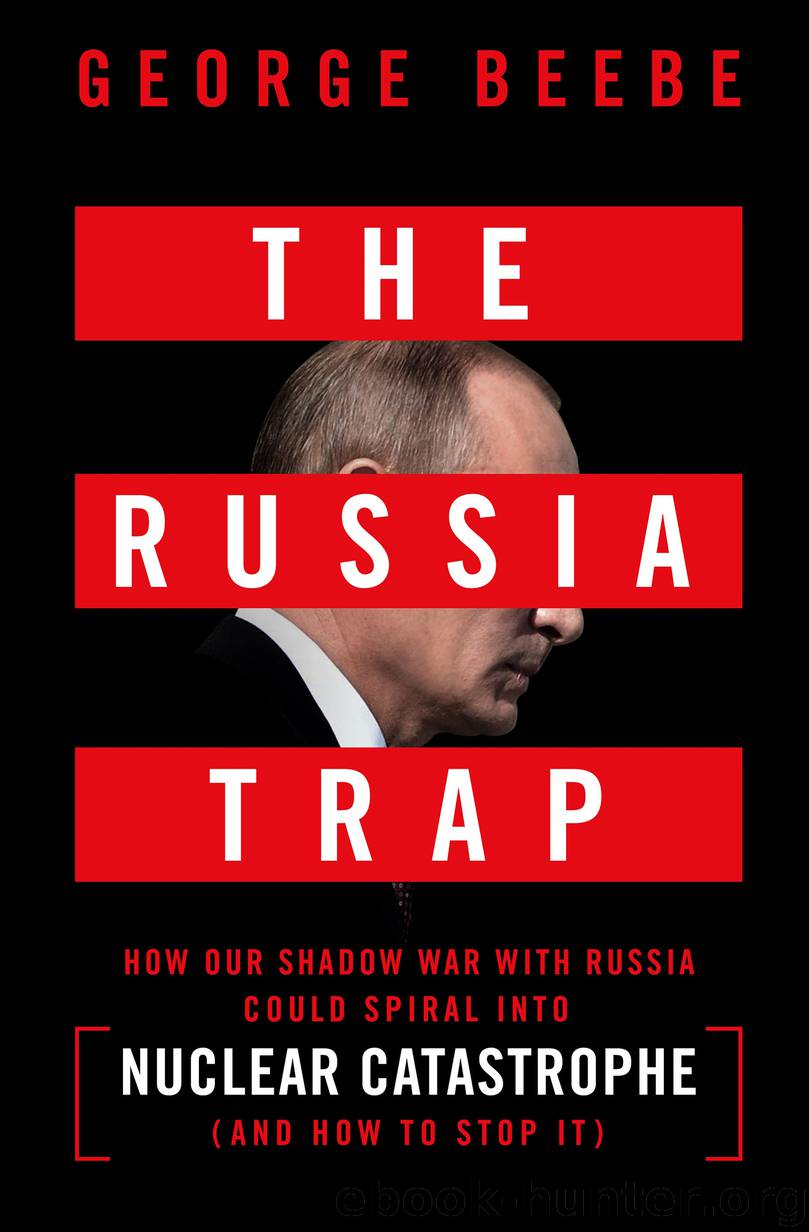The Russia Trap by George S. Beebe

Author:George S. Beebe
Language: eng
Format: epub
Publisher: St. Martin's Publishing Group
In the years leading up to the Pearl Harbor attack, the United States had put Japan under increasingly severe economic pressure in response to Japanese military conquests and expansionist policies in Asia. Washington terminated its commercial trade agreement with Tokyo in 1939, restricted the export of iron and steel in 1940, and then froze all Japanese assets in the United States in 1941 and placed a full embargo on oil exports. As an island nation whose industrial production and military capability were almost wholly dependent on the import of oil, steel, and other commodities, Japan viewed these measures as nothing less than an existential threat, but it had few economic cards it could play in response. A few days before the attack on Pearl Harbor, Japan’s ambassador to the United States delivered a diplomatic note that plainly set out his government’s perspective: “The Japanese people believe that economic measures are a much more effective weapon of war than military measures; that … they are being placed under severe pressure by the United States to yield to the American position; and that it is preferable to fight rather than to yield to pressure.” Despite that warning, Americans were stunned by what they regarded as an unprovoked attack on American territory.
One of the lessons of Pearl Harbor is the importance of alertness to the danger of secretly planned “bolt from the blue” attacks by hostile foreign actors, such as the Japanese in 1941 and al-Qaeda in 2001. During the Cold War, this American intelligence mission most often took the form of ascertaining Soviet intentions, plans, and capabilities to attack the American homeland or to mount an assault against important objectives in the European theater, such as the Fulda Gap. In the early post–Cold War years, it refocused on preventing attacks by terrorist groups or hostile states such as Iran and North Korea. Now, in an era defined by “the return of great power competition,” as the US National Security Strategy put it in 2018, intelligence alertness to the prospect of Russian or Chinese surprise attack, either against the continental United States or our friends and allies abroad, is once again coming to the fore.
Another lesson from Pearl Harbor, though, is the importance of sensitivity to the ways that adversaries can misread each other’s perceptions and take steps that trigger unexpected escalations into unsought, full-fledged kinetic warfare. Intentions are simultaneously the most important and most difficult thing to understand about one’s adversaries. And history is littered with examples of wars that involved the misreading of intentions, sometimes escalating even when their leaders tried to avoid them. World War I is perhaps the most notorious and impactful example, but it is far from the only one. The Seven Years’ War between France and Britain in North America arose unexpectedly out of small skirmishes because each side incorrectly believed that the other knew its aims were limited. The Korean War began in large part because the Soviets and North Koreans mistakenly believed that Washington did
Download
This site does not store any files on its server. We only index and link to content provided by other sites. Please contact the content providers to delete copyright contents if any and email us, we'll remove relevant links or contents immediately.
| Arms Control | Diplomacy |
| Security | Trades & Tariffs |
| Treaties | African |
| Asian | Australian & Oceanian |
| Canadian | Caribbean & Latin American |
| European | Middle Eastern |
| Russian & Former Soviet Union |
The Secret History by Donna Tartt(19025)
The Social Justice Warrior Handbook by Lisa De Pasquale(12182)
Thirteen Reasons Why by Jay Asher(8882)
This Is How You Lose Her by Junot Diaz(6869)
Weapons of Math Destruction by Cathy O'Neil(6260)
Zero to One by Peter Thiel(5782)
Beartown by Fredrik Backman(5733)
The Myth of the Strong Leader by Archie Brown(5491)
The Fire Next Time by James Baldwin(5422)
How Democracies Die by Steven Levitsky & Daniel Ziblatt(5209)
Promise Me, Dad by Joe Biden(5139)
Stone's Rules by Roger Stone(5078)
A Higher Loyalty: Truth, Lies, and Leadership by James Comey(4946)
100 Deadly Skills by Clint Emerson(4911)
Rise and Kill First by Ronen Bergman(4772)
Secrecy World by Jake Bernstein(4736)
The David Icke Guide to the Global Conspiracy (and how to end it) by David Icke(4696)
The Farm by Tom Rob Smith(4500)
The Doomsday Machine by Daniel Ellsberg(4480)
